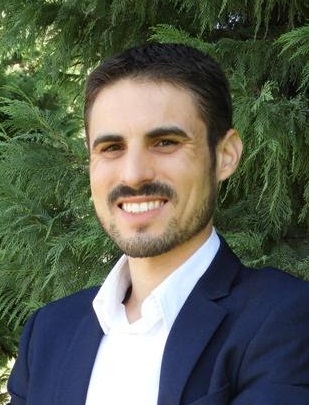National and International Call for 3 Post-Doctoral Fellowships in Political Economy, Public Policies, Political Science, and Related Areas
National and International Call for 3 Post-Doctoral Fellowships in Political Economy, Public Policies, Political Science, and Related Areas
The FAPESP Project (2021/11959-3), 'CITIES: Center for Innovation in Urban Public Policy' (FGV Cities), opens calls for applications for (3) postdoctoral scholarships to work within the scope of the CITIES project, according to the following themes:
- Integration of transportation modes and the future of mobility: Effects of distance, price, discount, and mode distribution on commuting choice.
- The Political Economy of Mobility: Causes and Consequences for Brazil
- Impact Evaluation of Urban Policies
Interested candidates can apply for the fellowship by sending an email to: This email address is being protected from spambots. You need JavaScript enabled to view it.
- specifying in the subject: Postdoctoral Fellowship (title of the fellowship) and sending
a preliminary work proposal of no more 6 pages; a letter of recommendation and Lattes and/or Vitae Curriculum.
The selection process will take place in two stages: Eliminatory and Classificatory.
The positions are open to Brazilians and foreigners. Selected candidates will receive a FAPESP Postdoctoral Scholarship in the amount of R$ 9,047.40 per month and a Technical Reserve equivalent to 10% of the annual scholarship value to cover unforeseen expenses directly related to the research activity.
For more information, please read the full notice: https://fgvcidades.fgv.br/noticia/fgv-cidades-abre-selecao-para-tres-bolsistas-de-pos-doutorado
ERSA Monthly E-news - March 2024
|
Call for papers | SPECIAL ISSUE ON The 15-minute city: A transportation and accessibility challenge, journal Transportation Research A
Call for papers
SPECIAL ISSUE ON
The 15-minute city: A transportation and accessibility challenge
Journal Transportation Research A
Guest editors:
1) Ass. Prof. Karima Kourtit - Open University, Netherlands( This email address is being protected from spambots. You need JavaScript enabled to view it. )
2) Professor Becky Loo - The University of Hong Kong, Hong Kong, China ( This email address is being protected from spambots. You need JavaScript enabled to view it.)
3) Peter Nijkamp - Open University, Netherlands (This email address is being protected from spambots. You need JavaScript enabled to view it.)
The journal Transportation Research A (Elsevier) is planning toThe journal Transportation Research A (Elsevier) is planning topublish a special issue devoted to the theme of “The 15-MinuteCity: A Transportation and Accessibility Challenge”.The guest editors of this special issue are Peter Nijkamp (TheNetherlands), Becky Loo (Hong Kong) and Karima Kourtit (TheNetherlands). More information on the call for papers for thisspecial issue (aims, scope, deadlines, etc.) can be found on thewebsite of the journal (https://www.sciencedirect.com/journal/transportation-research-part-a-policy-and-practice/about/call-for-papers).
RSAI members are invited to submit their excellent researchpapers in the field of this special issue for publication inTransportation Research A. Clearly, the standard rigorous reviewprocedure of the journal will be applied to any submitted paper. Incase you decide to submit a paper, it would be helpful to informthe guest editors in advance on the specific topic of the paper.
Submisison deadline : 30 May 2024
Winner 2024 - Martin Beckmann Annual Award for the best paper published in Papers in Regional Science in 2023

The Martin Beckmann RSAI Annual Award for the Best Paper in Papers in Regional Science
Winner 2024
RSAI has the great pleasure to announce that the jury consisting of Carlos Azzoni (LARSA), Janet Kohlhase (NARSC), Frank van Oort (ERSA) and Rosella Nicolini (ERSA, PiRS EiC) chose the article:
 |
 |
 |
 |
 |
This study proposes a novel contribution that shifts the research frontier of the literature on the quality of government, from a regional perspective, by emphasizing the relevance of the gender dimension. Referring to European regions, the authors produce valuable insights endorsed by precise quantitative evidence on the extent women’s political empowerment rises the quality of the government that, in turn, boosts female empowerment. From a technical viewpoint, this contribution implements a solid research methodology that addresses endogeneity with a tailored identification strategy by exploiting GS3SLS-RF method and dealing with spatial analysis in a causal framework.
as the winner of the Martin Beckmann Prize as the best paper published in Papers in Regional Science in 2023.
ERSA Summer School | There's still time to apply - Deadline 26 March
|
Papers in Regional Science, Volume 103, Issue 1 , February 2024
Papers in Regional Science
Volume 103, Issue 1 , February 2024
ISSUE INFORMATION
Article Number 100016
EDITORIAL
Editorial note
Article Number 100008
Rosella Nicolini
FULL ARTICLE
Regional determinants of biogas production units setup: Evidence from France
Article Number 100007
Eva Coll-Martínez, Geoffroy Labrouche, Simon Nadel, Luis Orozco
Regional participation to Research and Innovation programmes under Next Generation EU: The Portuguese case
Article Number 100006
Anabela M. Santos, Andrea Conte
How many gaps are there? Investigating the regional dimension of the gender commuting gap
Article Number 100005
Michaela Fuchs, Ramona Jost, Antje Weyh
Related industries, economic complexity, and regional diversification: An application for Brazilian microregions
Article Number 100011
Elton Freitas, Gustavo Britto, Pedro Amaral
“Natural” disasters and regional governance: Evidence from European NUTS-3 regions
Article Number 100003
Davide Di Marcoberardino, Marco Cucculelli
Geography matters: The impact of geographic expansion on bank performance during the Great Recession
Article Number 100009
Luke Petach, Stephan Weiler, Greg Totten
The external effects of public housing developments on informal housing: The case of Medellín, Colombia
Article Number 100004
Héctor M. Posada, Andres García-Suaza, David Londoño
BOOK REVIEWS
Research Handbook on City and Municipal Finance
Article Number 100001
Tetiana Paientko
Cultural and Creative Industries and Regional Development. Creativity Where and Why
Article Number 100002
Artur Ochojski
CFP: PRSCO 2024 (Abstract Deadline extended to March 31)
Dear Members of the Regional Science Community,
The abstract deadline for PRSCO has been extended to March 31, which is set to be held in Daegu, South Korea, from August 4 to 7, 2024. I look forward to receiving your abstracts!
Best regards,
Jun, Hee-Jung, Ph.D.
Professor, Department of Public Administration/Graduate School of Governance
Sungkyunkwan University, South Korea
Chair of International Committee, Korean Regional Science Association
Call for Papers: The 28th Pacific Conference of the RSAI
The 28th Pacific Conference of the Regional Science Association International(RSAI) will be hosted by the Korea Regional Science Association(KRSA) in partnership with the Regional Science Association International, at EXCO, Daegu, South Korea, on August 4-7, 2024.
The overarching theme of the conference is: “Sustainability of the Region in the Era of Great Transformation”. This theme reflects the need to address the challenges and opportunities that arise from the great transformation in the region. The conference aims to explore ways in which the region can adapt and thrive in the face of these changes in a sustainable way. This includes examining the economic, social, and environmental aspects of sustainability, and identifying strategies and solutions that can contribute to the long-term well-being and resilience of the region.
The conference will bring together experts, scholars, and practitioners from various fields to share their insights and experiences, fostering meaningful discussions and collaborations to drive positive change. Together, we can work towards a more sustainable future for the region.
The conference committee calls for papers on various topics related to this overall theme in regional science for presentation at the conference. The committee will welcome papers on any aspect of regional science, and would particularly welcome papers reporting research or case studies on the following topics:
- Regional economics and development
2. Income inequality and regional disparities
3. Infrastructure, basic utilities and regional management
4. Public services and human development
5. Trade, investment and economic growth
6. Decentralization and regional fiscal policies
7. Regional macro and financial policies
8. Local government innovation and governance
9. Economic shocks and social safety nets
10. Culture, land and village development
11. Environmental and climate change
12. Big data, artificial intelligence, and regional analysis
13. GIS and spatial econometrics
The paper abstract of about 500 words should be submitted online via this link by Mar 31, 2024:
https://prsco2024.krsa83.or.kr/
Abstract should consist of background, data and methodology, potential contributions, and keywords. Abstracts must be submitted in English. Paper sessions are seminar-style for each paper and given ample time for discussion so that participants may provide constructive feedback to authors. Paper presentations will be made in English.
Important dates:
Dec 1, 2023 : Abstract submission opening
Mar 31, 2024 : Abstract submission deadline
Apr 15, 2024 : Early bird registration open
Apr 15, 2024 : Notification of abstract acceptance
Jun 1, 2024 : Full Paper submission deadline
Jun 15 2024 : Early bird registration end
Jun 30, 2024 : Paper presenter registration deadline
Aug 4, 2024 : The Regional Science Academy
Aug 5–7, 2024 : Conference date
In Partnership with:
Regional Science Association International (RSAI)
Hosted and Organized by:
Pacific Regional Science Conference Organization (PRSCO)
Korea Regional Science Association (KRSA)
Daegu Policy Institute
Regional Science Policy & Practice, Volume 16, Issue 4, April 2024, Special Issue on Western Balkans; Climate Economics
Regional Science Policy & Practice
Volume 16, Issue 4, April 2024
Western Balkans; Climate Economics
Issue Information
Article 167
The Impact of European Integration on the Western Balkan Countries
Editorial Note: The Impact of European Integration on the Western Balkan Countries
Article 168
Emerging ICT clusters in the Western Balkans: A convergence model based on financial statement analysis
Article 12687
Does economic globalization trigger de‐industrialization in Western Balkan countries? Empirical evidence based on augmented mean group estimator
Article 12709
Does integrated transport topology act as a stimulus for inclusive growth and regional development in Bosnia and Herzegovina?
Article 12732
Climate Economics
Editorial Note: Climate economics
Article 173
Disaster vulnerability from Winter Storm Benji with Twitter data
Article 12563
Lessons from Regional Electricity Demand Change following Natural Disasters in Japan
Article 12631
A linkage analysis of the mining sector in the top five carbon emitter economies
Article 12678
Regional Science Policy & Practice, Volume 16, Issue 3, March 2024, Special Issue on Regional Development in Central Asia and Africa
Regional Science Policy & Practice
Volume 16, Issue 3, March 2024
Regional Development in Central Asia and Africa
Issue Information
Article 169
Regional Development in Central Asia
Editorial Note: Regional Development in Central Asia
Article 170
Vertical coordination in agri‐food supply chain and blockchain: A proposed framework solution for Vietnamese cashew nut business
Article 12576
Regional development of Kazakhstan: Theoretical premises and reality
Article 12616
Assessment of the migration processes on the example of Kazakhstan
Article 12645
Economic efficiency of using internal land management on the basis of agroindustrial enterprises
Article 12674
The model of environmental accounting and auditing as a factor in increasing the efficiency of management decisions at industrial enterprises in the Republic of Kazakhstan
Article 12727
Regional Sustainable Development in the North of Africa
Editorial Note: Regional Sustainable Development in the North of Africa
Article 171
Sources of Algeria's economic growth, 1979–2019: Augmented growth accounting framework and growth regression method
Article 12448
Modeling regional innovation in Egyptian governorates: Regional knowledge production function approach
Article 12450
Factors of regional financial inclusion in Morocco
Article 12516
To innovate or to import innovation? Evidence from African countries
Article 12594
Regional subjective well‐being through a media sentiment index: Case of the Drâa‐Tafilalet oasis region in Morocco
Article 12644
Perspectives for smooth bridging of dichotomized urban–rural land development in the peri‐urban areas of Ethiopia: Toward a continuum approach
Article 12733
Regional Science Policy & Practice, Volume 16, Issue 2, February 2024, Special Issue on Sustainable Development in Western Asia and Afghanistan
Regional Science Policy & Practice
Volume 16, Issue 2, February 2024
Sustainable Development in Western Asia and Afghanistan
Issue Information
Article 165
Sustainable Development in Western Asia and Afghanistan
Editorial Note: Sustainable Development in Western Asia and Afghanistan
Article 166
Exploring the food, energy, and water governance in South‐West Iran
Article 12578
Deprivation Spatial Concentration in a Developing Country: Evidence from Iran
Article 12560
Driving factors on unemployment in Iran’s provinces: Do temporal and spatial dynamics matter?
Article 12715
Investigating economic synergy in the spatial structure of Tehran metropolitan region
Article 12627
How urban shopping malls in Tehran have changed in the post‐COVID era
Article 12628
Clustering policy for urban competitiveness: One‐size‐fits‐all? Evidence from Tehran
Article 12699
Classical and Spatial Cluster Analysis of Smuggling in Iranian Provinces
Article 12609
Examination of Afghanistan's Development Traps
Article 12556
The puzzle of public health expenditure and healthcare infrastructure in India: An empirical investigation
Article 12710
How spillovers from pollution cleanup in the Ganges affect welfare in Kanpur and Varanasi
Article 12728
About Us
The Regional Science Association International (RSAI), founded in 1954, is an international community of scholars interested in the regional impacts of national or global processes of economic and social change.


 Dear Members of ERSA, dear Colleagues,
Dear Members of ERSA, dear Colleagues,














 Looking for valuable knowledge on territorial imbalances?
Looking for valuable knowledge on territorial imbalances?
